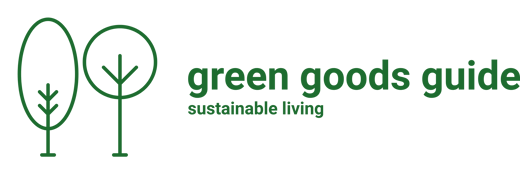Indigenous Knowledge: A Guide to Sustainable Living
Indigenous knowledge is the knowledge and practices that have been passed down from generation to generation by indigenous peoples. This knowledge can be a valuable resource for sustainable living.
8/26/20234 min read


Introduction
Indigenous peoples have a deep understanding of the natural world and have developed sustainable ways of living in harmony with nature. This knowledge, known as indigenous knowledge, can be a valuable resource for people all over the world who are seeking to live more sustainably.
Indigenous knowledge is based on a deep understanding of the natural world and its cycles. Indigenous peoples have learned to live in balance with nature by observing the seasons, the weather, and the behavior of plants and animals. They have developed traditional practices that help to protect the environment, such as sustainable agriculture, forest management, and water conservation.
Indigenous knowledge is also based on a respect for the interconnectedness of all life. Indigenous peoples believe that all living things are connected, and that humans have a responsibility to care for the Earth and all its creatures. This respect for nature is reflected in their traditional practices, which often involve rituals and ceremonies that are designed to connect people with the natural world.
The Importance of Indigenous Knowledge for Sustainable Living
In today's world, we are facing a number of environmental challenges, such as climate change, pollution, and deforestation. Indigenous knowledge can be a valuable resource for addressing these challenges.
Indigenous knowledge can help us to develop more sustainable ways of living. For example, traditional agricultural practices can help us to conserve water and soil, and traditional forest management practices can help us to protect forests from deforestation. Indigenous knowledge can also help us to develop new technologies that are more sustainable.
In addition to its practical value, indigenous knowledge can also teach us about the importance of respecting nature and living in balance with the Earth. This knowledge is essential if we are to create a more sustainable future for all.
How to Use Indigenous Knowledge for Sustainable Living
There are many ways to use indigenous knowledge for sustainable living. Here are a few examples:
Learn about traditional agricultural practices.
Learn about traditional forest management practices.
Learn about traditional water conservation techniques.
Participate in traditional ceremonies and rituals that connect you with the natural world.
Support indigenous-led organizations that are working to protect the environment.
By learning from indigenous peoples, we can develop more sustainable ways of living and create a more just and equitable world for all.
Green Goods Guide
In addition to following the tips above, we can also help to make our lives more sustainable by choosing green goods. Green goods are products that are made from sustainable materials and that have a low environmental impact. Here are a few examples of green goods:
Locally-sourced food: Locally-sourced food is produced in the community, which reduces transportation emissions.
Fair trade products: Fair trade products are produced under fair labor conditions and are often made from sustainable materials.
Recyclable products: When we choose products that are made from recyclable materials, we help to reduce waste.
Energy-efficient appliances: Energy-efficient appliances use less energy, which can help to reduce greenhouse gas emissions.
Water-saving fixtures: Water-saving fixtures, such as low-flow toilets and showerheads, can help to conserve water.
By choosing green goods, we can all help to make our lives more sustainable.
Here are some statistics and data from India and around the world regarding indigenous knowledge and sustainable living:
India
According to the United Nations Development Programme, India is home to over 500 million indigenous people, making it the country with the largest indigenous population in the world.
Indigenous peoples in India have a deep understanding of the natural world and have developed sustainable ways of living in harmony with nature.
For example, the Adivasi people of central India have a traditional practice of shifting cultivation, which involves rotating crops and allowing the land to rest for periods of time. This practice helps to prevent soil erosion and maintain soil fertility.
The Tharu people of the Himalayan foothills have a traditional practice of rainwater harvesting, which helps to conserve water during the dry season.
Around the world
There are over 370 million indigenous peoples in the world, representing about 5% of the global population.
Indigenous peoples have developed a wide range of sustainable practices, including traditional agriculture, forest management, and water conservation.
For example, the Maasai people of East Africa have a traditional practice of grazing their livestock in a rotational manner, which helps to prevent overgrazing and soil erosion.
The Kuna people of Panama have a traditional practice of using medicinal plants, which helps to maintain their health and well-being.
The importance of indigenous knowledge for sustainable development
Indigenous knowledge is essential for sustainable development. Indigenous peoples have a deep understanding of the natural world and have developed sustainable ways of living in harmony with nature. This knowledge can be used to develop new technologies and practices that can help us to address the challenges of climate change, pollution, and deforestation.
In addition, indigenous knowledge can help us to develop more just and equitable societies. Indigenous peoples have a unique perspective on the world, and their knowledge can help us to create a more sustainable and equitable future for all.
How to protect indigenous knowledge
Indigenous knowledge is often threatened by colonization, development, and climate change. It is important to protect indigenous knowledge by:
Documenting and preserving indigenous knowledge.
Supporting indigenous-led initiatives to protect their knowledge.
Promoting the use of indigenous knowledge in decision-making.
Educating the public about the importance of indigenous knowledge.
By protecting indigenous knowledge, we can ensure that it is available for future generations and that it can be used to create a more sustainable and equitable world.
Keywords:
indigenous knowledge
sustainable living
green goods
traditional agriculture
traditional forest management
water conservation
fair trade
recyclable products
energy-efficient appliances
water-saving fixtures
We hope this blog post has helped you learn more about indigenous knowledge and how it can be used for sustainable living.
